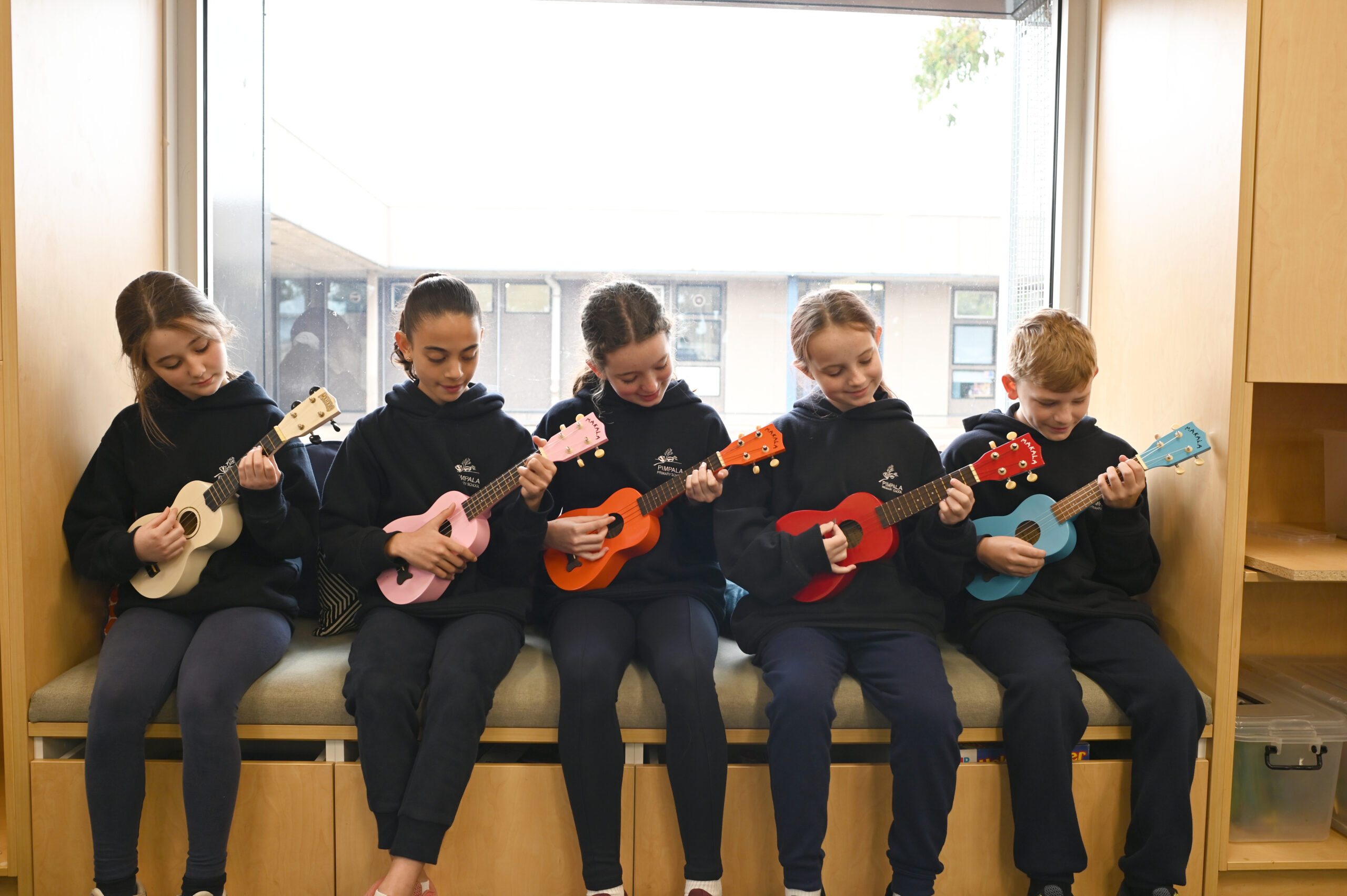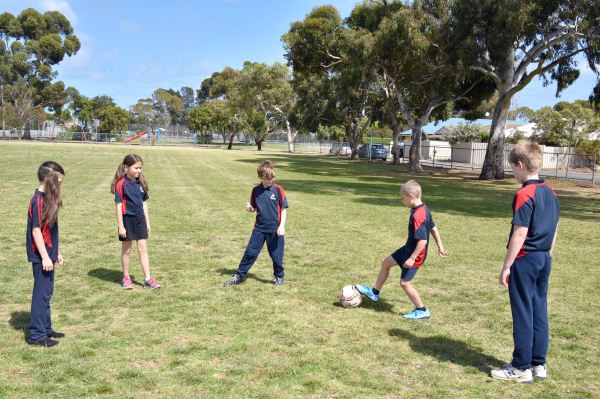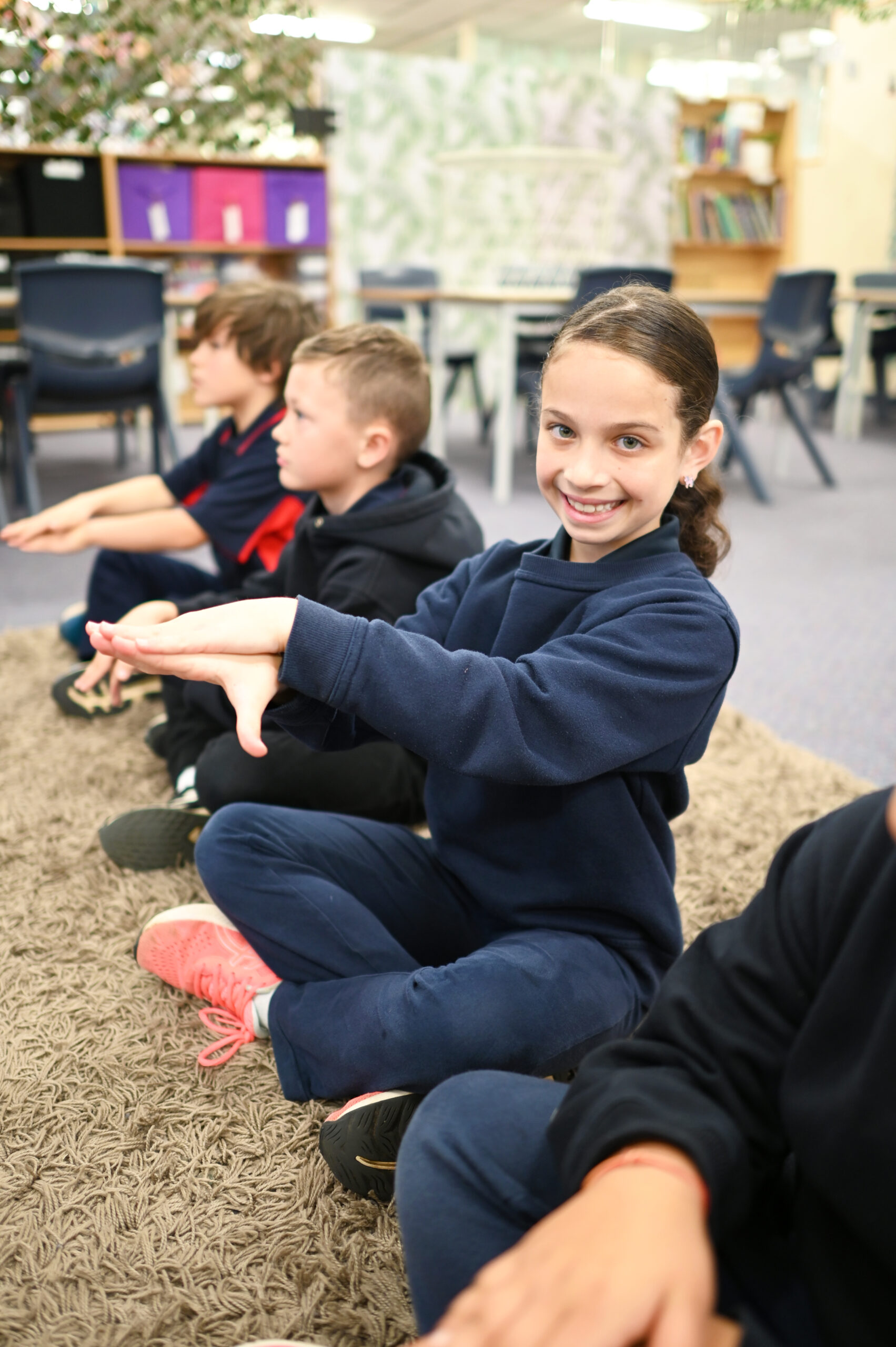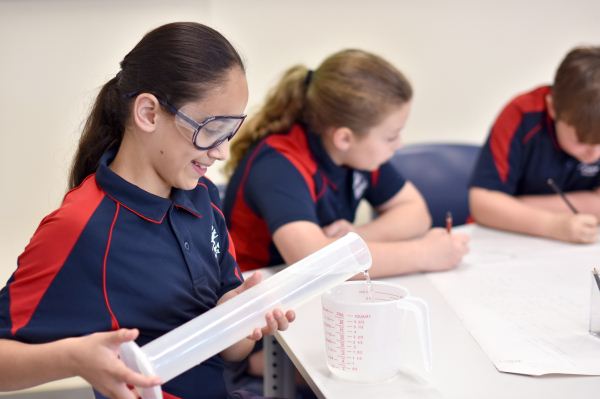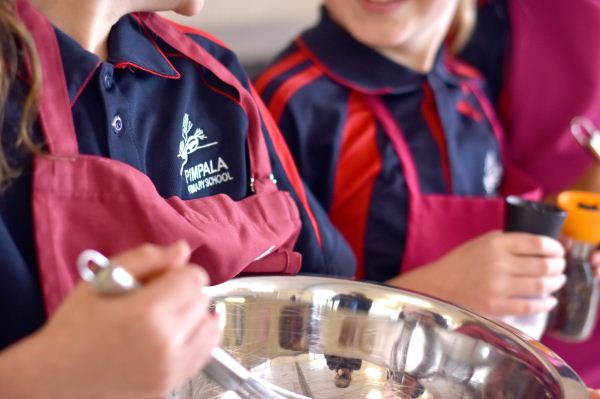Specialist programs
Arts
We offer a strong program in the Arts, including music, dance, drama and media. The program helps develop students’ creativity, confidence, cultural knowledge and critical thinking.
Our program includes:
- school choir, with participation in the Festival Choir
- participation in the Primary School Music Festival – information below
- regular assembly dance performances and an end-of-year performance.
We are a Festival of Music school
Pimpala Primary School participates in the Festival of Music each year. Students from our school have been involved in many ways. Along with our school choir performing in the Festival of Music concert series, we have also had students in the orchestra, in the performance troupe and as hosts.
The Primary Schools Music Festival presents the Festival of Music in South Australia annually and is recognised as a state heritage icon. This choral program has a longstanding tradition that has impacted generations of public school students across South Australia.
It is a highly valued part of the school curriculum here at Pimpala Primary School. Students and families look forward to taking part every year. It stands at the forefront of arts education in South Australia.
The Festival of Music resonates with Pimpala Primary School commitment to promote the importance of music and the arts in education along with engaging our school community. It plays a vital role in nurturing young talent, fostering a sense of unity and inclusivity, and preserving and building South Australia’s musical landscape and history.
The positive benefits of maintaining a culture of choir and singing at Pimpala Primary School unequivocally fosters the magic of social connection, belonging and teamwork, strengthens body posture, develops lung function, and helps blood pressure (wellbeing), improves literacy skills (excellence and equity, effective learners), along with many more benefits that enable students to thrive and prosper!
The Festival of Music provides our school with a program that connects each of us with our shared humanity.
Physical Education
Students participate in Physical Education lessons with a specialist teacher. Lessons focus on skill and capacity building.
Students can develop team play and team building skills through our specialist sports program. The program is run by a specialist teacher and volunteer parent coaches. Our program includes:
- SAPSASA events
- team sports (soccer and basketball)
- sports day
Auslan
Students from Reception to Year 6 participate in Auslan – Australian sign language, a language developed by, and for, Australians who are deaf or hearing impaired.
It’s a visual form of communication that uses hand, arm and body movements to convey meaning.
Lessons focus on the conveying, understanding and interpreting of the language, movements, actions and expressions.
Science
Students from Reception to Year 6 participate in science lessons focusing on four areas of science.
Biological science
Earth and space science
Physical science
Chemical science
Science enables students to develop an understanding of important science concepts and processes, the practices used to develop scientific knowledge, science’s contribution to our culture and society, and its uses in our lives. It supports students to develop the scientific knowledge, understandings and skills needed to make informed decisions about local, national and global issues, and to succeed in science-related careers.
Stephanie Alexander Kitchen Garden Program
What is a kitchen garden?
The Stephanie Alexander Kitchen Garden Program has four major components which involves the students in the growing, harvesting, preparing, sharing and learning about food.
By encouraging the students through the process of the program the students will experience positive experiences that can lead them to a lifetime habit of healthy eating.
Stephanie Alexander believes passionately that young children will develop lasting positive attitudes to a wide range of foods, with consequent long-term health benefits, if they are introduced to them at an early age in a pleasurable non-judgmental way. Please see the recipes we have used below.
The Vision
The Stephanie Alexander Kitchen Garden Foundation exists to develop life-long healthier and happier eating habits in a new generation of Australians.
The Foundation promotes healthy lifestyles through greater physical activity and nutritious eating, and by addressing the rising prevalence of childhood obesity and diabetes.
The creation and care of a Kitchen Garden teaches children about the beauty of the natural world, how to care for it and how to use its resources. The kitchen garden program will give children an appreciation for how easy it is to bring joy and well being into one’s life through growing, harvesting, preparing and sharing fresh seasonal produce.
There are two unique factors about the Kitchen Garden Program. The first is the intrinsic link between the garden, the kitchen and the table. The second factor is that the Program is embedded in the curriculum as a compulsory part of the school’s program for seven years of a child’s primary school life.
The Benefits
Working in the garden is a physical activity.
Experience in the kitchen not only introduces children to new foods and recipes but also provides them with skills such as using a knife safely and effectively or managing hot stoves and saucepans. They learn that new experiences can be rewarding and their self esteem, confidence and sense of achievement is enhanced as they learn to work cooperatively, share resources, respect each other, see teachers in a different learning environment, gain enjoyment working in the garden and the kitchen. Children will learn to measure, calculate and problem solve, expand their vocabulary and language skills and learn about new foods and cultures.
The Children
- expend physical energy working in the garden
- learn new language to describe food, plants, textures and flavours
- use maths to measure and weigh
- discover the pleasure of the shared table
- learn to work as part of a team
- develop greater self confidence
- gain awareness of cultural differences
- develop awareness of the environment and plant diversity
- develop the skills to prepare a three course meal
- learn time management and organisational skills

